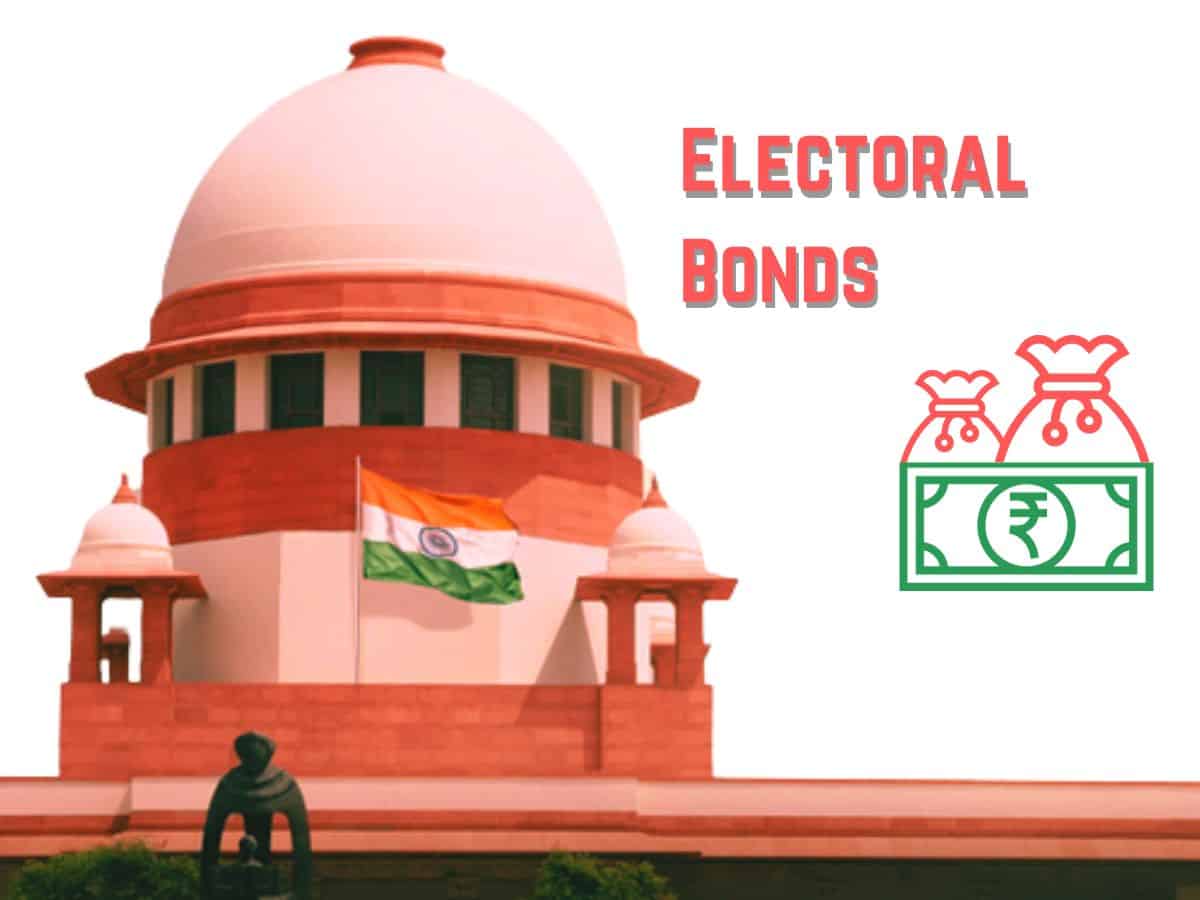
New Delhi: The Association for Democratic Reforms (ADR) moved a contempt plea in the Supreme Court on Thursday, March 7, challenging the State Bank of India’s (SBI) application seeking an extension of time till June 30 to disclose the details of each electoral bonds encashed by political parties.
A bench headed by Chief Justice D Y Chandrachud took note of the submissions made by lawyer Prashant Bhushan, who appeared in the court on behalf of ADR, that he was seeking initiation of contempt proceedings in the case.
“The SBI has wilfully and deliberately disobeyed the judgement passed by the Supreme Court, and the same not only negates the right to information of the citizens but also wilfully undermines the authority of the court,” stated the ADR in its appeal.
Bhushan said the SBI’s plea is likely to be listed on March 11 and the contempt application should also be heard together.
“Please send an e-mail. I will pass the order,” the CJI said.
In its verdict on February 15, the top court quashed electoral bonds terming it illegal and directed the SBI to furnish the details to the Election Commission (EC) by March 6.
The SBI moved the top court on March 4, seeking an extension of time till June 30 to disclose details of electoral bonds. In an application filed before the top court, SBI contended that retrieval of information from “each silo” and the procedure of matching the information of one silo to that of the other would be a time-consuming exercise.
The plea submitted that due to stringent measures undertaken to ensure that the identity of the donors was kept anonymous, “decoding’ the electoral bonds and matching donors to the donations made would be a complex process.
What are electoral bonds?
Electoral bonds allow individuals or organisation to donate money to political parties. The transaction is mostly private and secure. An individual or organisation can purchase bonds from a bank, in this case SBI, and give them to their political party. The political party can encash these bonds to receive the donated money.
The electoral bonds should be used within a specific time frame. Every bank offers a different validity period. These bonds are available in denominations of Rs 1,000, Rs 10,000, Rs 1 lakh, Rs 10 lakh and Rs 1 crore each. The largest denomination is the most popular.
(With inputs from PTI)



